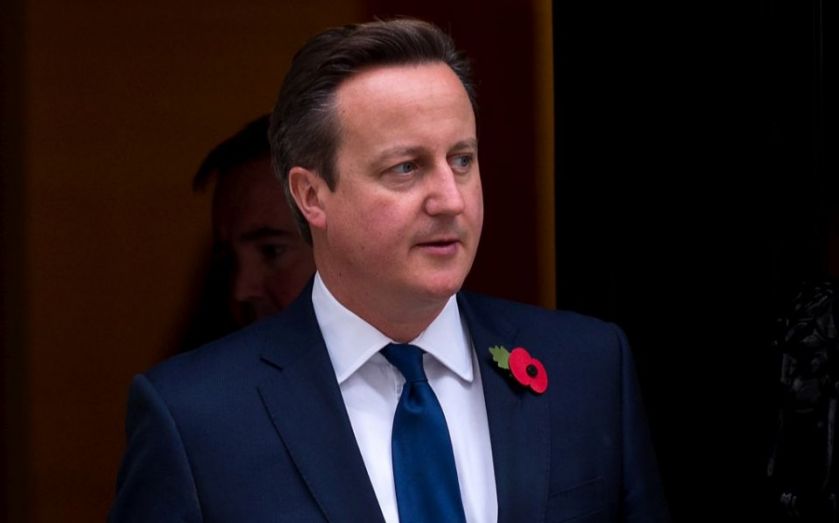EU reforms speech: David Cameron’s European Union renegotiation failed before it even began

Today, David Cameron will deliver a much-awaited speech setting out in detail the reforms he wishes to see adopted by the European Union. I am sorry to say this, but in regard to achieving significant and lasting change, it is an entirely shallow and pointless exercise. To paraphrase Churchill’s dictum, the Prime Minister’s renegotiation is a fudge, wrapped up in a charade, coated with insincerity.
Originally, Cameron did not want to reveal to the EU what his demands are. We know this because EU leaders have said so. In the end, the Prime Minister was told to provide a letter to the European Council president Donald Tusk. He then did not want that letter to be made public, but was politely told to do so by the House of Commons European Scrutiny Committee. The reason for his reluctance will today become plain to see by comparing his current demands with the reforms he was originally looking for – first in his Bloomberg speech in 2013, in subsequent piecemeal announcements, and then in the Conservative general election manifesto. An initial list of 24 changes has been reduced to just four, likely including the surely cosmetic demand that the EU accepts Britain will never join the euro.
Those 24 ingredients in his recipe for reform were already uninspiring: there was no attempt to reduce our massive net contribution to the EU of £12bn a year or £55m a day, no attempt to change the discredited Common Agricultural Policy or Common Fisheries Policy, and no attempt to at last secure a single market in services some 35 years after the process first started.
Even so, after touring round the EU capitals since he secured his second term, the Prime Minister has had to capitulate on issue after issue to the point where he can only muster four objectives that he believes will justify the UK remaining in the EU. Over the same period, of course, the Greek euro debt crisis has revived calls for further integration of the Eurozone and the European migrant crisis has laid bare the EU’s significant fault lines, highlighting the need for further safeguards that the Prime Minister appears unable to secure.
The poverty of Cameron’s ambition is not the main problem he faces, however. The fatal flaw is that he has no prospect of achieving treaty change before the EU referendum. Without amendments to the existing treaties, anything conceded to the UK by the EU is utterly worthless. It is as concrete as a verbal IOU, as binding as an unsigned contract.
If any political agreement falls prey to a dispute – and the EU is a highly litigious institution – then the European Court of Justice (ECJ) must base its judgment on the existing treaties, not promises that are to all intents and purposes without legal foundation. The ECJ has consistently struck down previous agreements entered into between EU leaders and individual countries in the past.
A chief executive presenting any such supposedly binding deal to a board – never mind the public – would be politely asked to take gardening leave.
To make up for the Prime Minister’s intentional sleight of hand, he and his chief negotiator, George Osborne, will claim that any changes he eventually wins will be backed-up by written commitments to include them in future treaty changes some time in the future. Any apprentice auditor or lawyer would realise immediately that such assurances would not stand up to the most simple test of due diligence.
For a start, leaders of other countries that might give the Prime Minister a commitment can, by the time it comes to a treaty negotiation, change their minds (it happens); they can be forced to recant by their own parliaments (it has happened before); and of course they can be replaced by a new leader who takes a completely different view.
Then there is the small but crucial matter that any treaty change requires unanimity among all 28 members and that some countries must, by their constitutions, hold a referendum to endorse the new treaty. The prospect of the French, Dutch, Irish or other electorates rejecting an as yet unknown treaty must be high. They have, after all, done it before.
The Prime Minister’s proposals for a renegotiation are nothing more than a typical EU fudge, intended to placate and even deceive the British public. It bears no relation to the original ingredients David Cameron first listed – its purpose is to give the appearance of being firm and palatable when it is soft and tasteless, and within months it will be past its sell by date.
The re-negotiation, such as it is, is a charade designed to give the impression that something substantial is being achieved. My faith in the British people tells me not too many will be fooled.